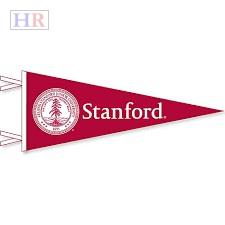What you should know about the College Admission Process: The Wait is Almost Over
For high school seniors, this is the most difficult time in the college admission process. The regular college decision notification date of highly selective colleges in the US is approaching on April 1. Colleges like Williams, Amherst, Princeton, Dartmouth, Johns Hopkins and the University of Chicago send out their final decisions at the end of this month. It’s a long wait after submitting applications months ago. Seniors have heard from many of the schools they applied to but they may be awaiting the decision from what may be the college of their dreams.
What will happen between now and May 1?
 1 You’ll be accepted. A hearty congratulations! You worked hard in high school and on your college applications. Revisit your accepted schools and attend open houses that are offered in April. Sit down with your parents and take a long hard look at your finances.
1 You’ll be accepted. A hearty congratulations! You worked hard in high school and on your college applications. Revisit your accepted schools and attend open houses that are offered in April. Sit down with your parents and take a long hard look at your finances.
2. You’ll be rejected--and that stinks. But it’s time to move on. Now take a look at the colleges where you have received acceptances. And when you do consider your accepted colleges, remember it’s how you look at them. Wayne Dyer, American philosopher and self-help guru said, “If you change the way you look at things, the things you look at change.” The local public college may serve you well and position you financially ready to attend grad school, or maybe there is a private school that is offering you a fabulous merit award thus reducing your college bill and future debt?
3. You’ll be waitlisted. First, decide if you want to be placed on the college’s wait list and then notify the school of your wishes. We’ve all heard stories about people getting admitted this way but the chance is still remote. If you attempt to look at the school’s historical acceptance data on wait lists, you’ll most likely find that it varies from year-to-year and acceptances are few and far between. Waiting lists were created for the school, not the applicants. They need to meet their enrollment goal and have you hanging in case they need you. See my May 16, 2015 article in the Holliston Reporter for further information. Deposit is due by May 1 to a school where you have been accepted.
3. You’ll need to evaluate your wants and needs. Gain some perspective at this time of your life. Frank Bruni, journalist and columnist for the New York Times, wrote in his recent book, Where You Go Is Not Who You’ll Be, about our obsession with elite colleges and the admissions process that has spun “wildly out of control.” “College has no monopoly on the ingredients for professional success or for a life well lived.” Bruni says. For example, he cites that in 2014, 40% of the CEO’s of Fortune 500 businesses graduated from schools like the University of Tulsa, University of Missouri, University of Pittsburgh and University of Minnesota; schools that are not considered elite. Malcolm Gladwell, Canadian author and writer for the New Yorker, wrote a piece on Relative Deprivation Theory and what he cleverly names “Elite Institution Cognitive Disorder,” his name for America’s obsession with elite colleges.
 4. You’ll need to evaluate costs. Seriously consider the debt you will incur wherever you decide to attend school. Work over the financial aid award letters you receive from your accepted schools and break down the loans versus the “free money” such as work-study, grants and scholarships. Compare the schools’ awards. Debt should be weighted as seriously as other factors in your college choice. Since all award letters differ in format use this tool to compare awards. The average debt college graduates incur hovers around $30,000.
4. You’ll need to evaluate costs. Seriously consider the debt you will incur wherever you decide to attend school. Work over the financial aid award letters you receive from your accepted schools and break down the loans versus the “free money” such as work-study, grants and scholarships. Compare the schools’ awards. Debt should be weighted as seriously as other factors in your college choice. Since all award letters differ in format use this tool to compare awards. The average debt college graduates incur hovers around $30,000.
Is the acceptance to an elite school most important to you? Put perspective on it and see if it is something that supports your life goals. Colleges will soon make their decisions, now it’s your turn to make yours.
Joanne Clary Apesos is the owner of College Pursuits, a college counseling business in Holliston. She has advised high school students and their families in planning their college experience for many years and has presented HEF workshops for students and parents about the college selection process. Prior to assisting high school students she worked in higher education for 20+ years as an admissions counselor, adjunct faculty and director of student activities at both public and private colleges and universities in the Northeast. She holds a master’s degree in Higher Education from Columbia University and completed UCLA’s College Counseling Certificate Program. She can be reached at joanneapesos@gmail.com.